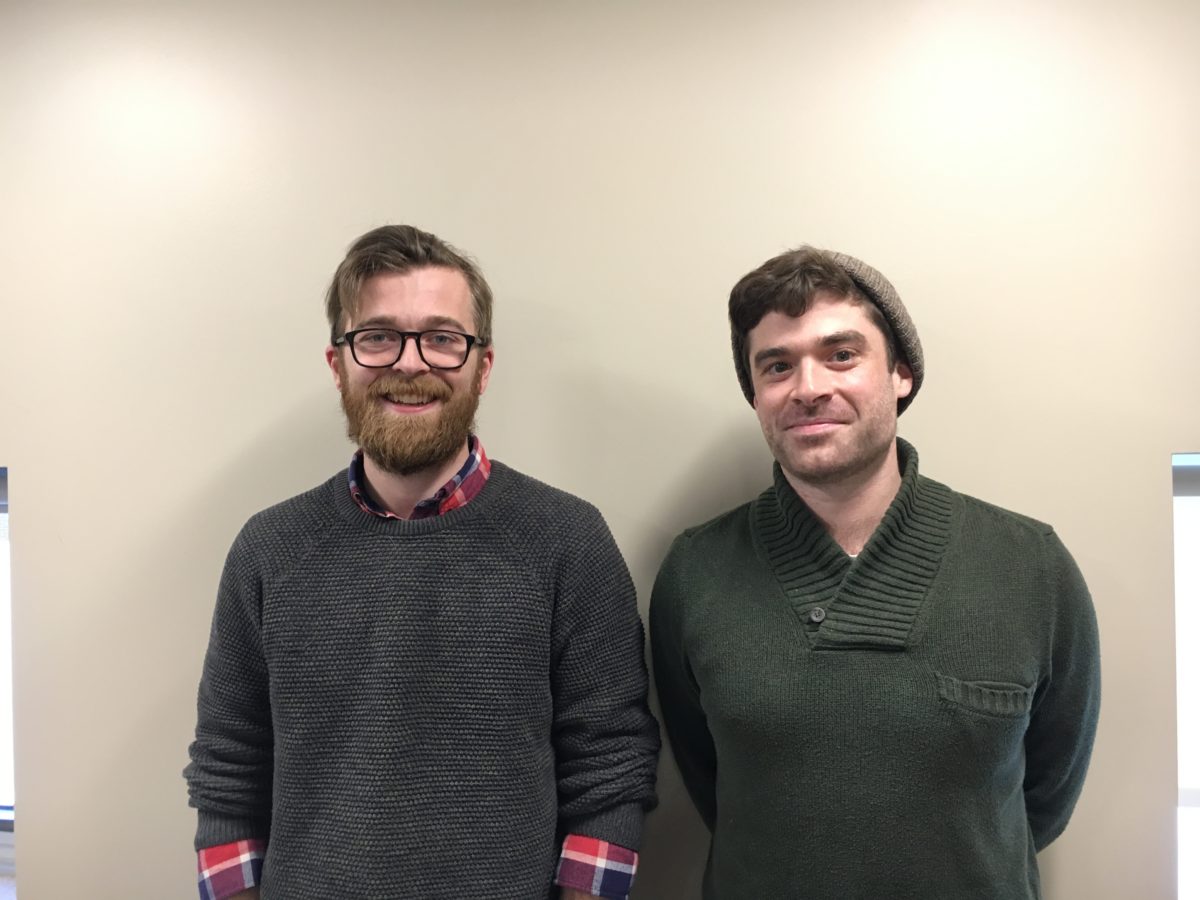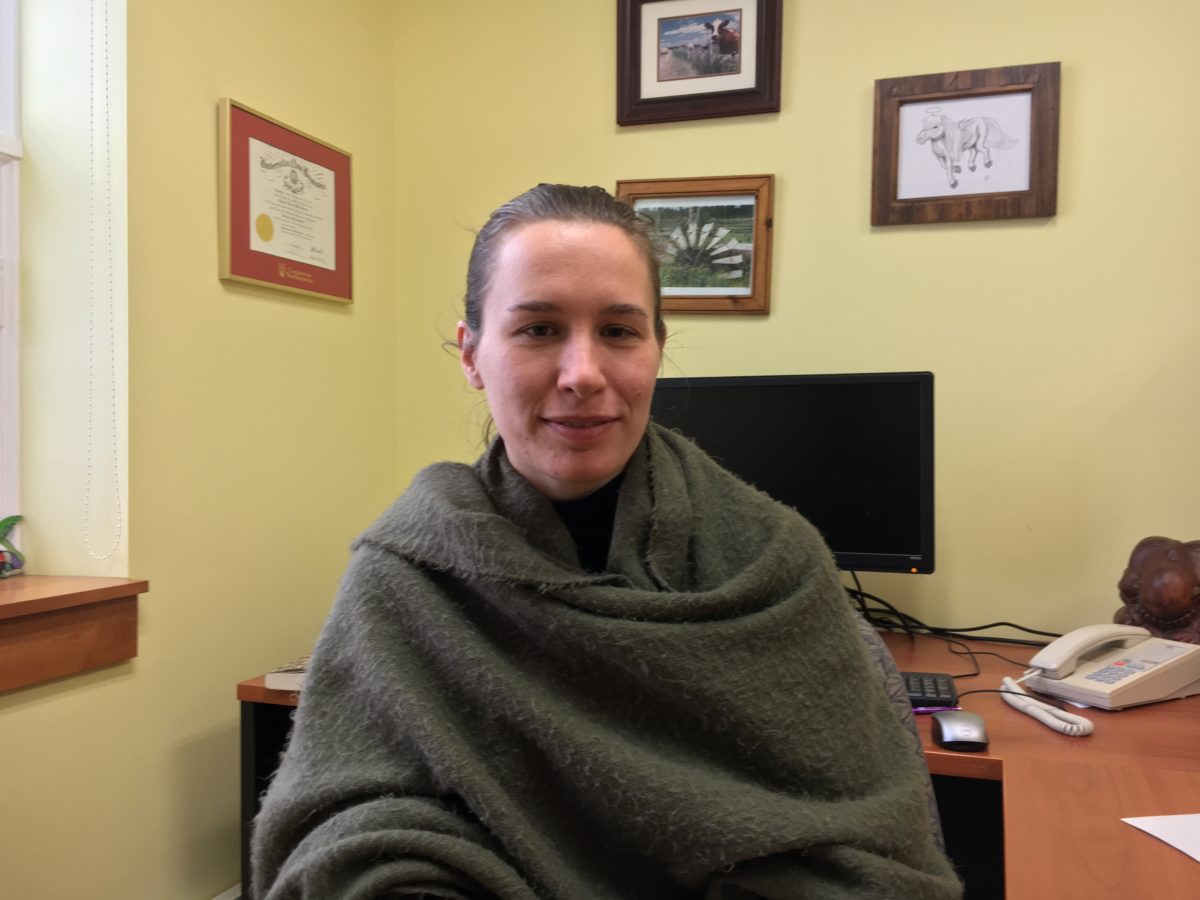When I got my first iPhone two years ago, I was ecstatic to join the Apple club. I was intrigued by the innovative features like Siri feeding me all the answers I needed, and the convenient Touch ID, which let me unlock my phone with my fingerprint. Considering technology and surveillance are advancing so quickly, I’ve come to a scary realization: Apple has my fingerprint and may have heard me sing countless songs in the shower. Shit.
Nathaniel Brewer, a fourth-year computer science student at the University of New Brunswick, recognizes this dichotomy all too well.
“If you think about the technological developments that are on the horizon, I think a lot of people are really excited about it,” he said.
“But I think at the same time, you’ll probably find other people that are concerned as well.”

I am definitely the latter. From iPhone X’s facial recognition to recently-developed artificial intelligence systems, it’s unsure where humanity’s role will lie decades from now. Will basic human skills get thrown out the window? Does the increase in surveillance and collection of data threaten our privacy?
Tesla vehicles have an autopilot feature so you can sit back and relax behind the wheel. Although the average person can’t afford this type of car quite yet, this could become the norm. Driver’s licences could become obsolete — and so could the driver.
Smart speakers like the Amazon Echo and Google Home offer homeowners quick answers, convenience and even a place to store thoughts. Assistants like the Echo’s “Alexa” can check the weather, look up recipes and set reminders for us. There may come a time where thinking and doing things for ourselves could be eradicated. Not to mention, Alexa begins recording what she hears when she is activated by hearing her name, so be careful of what you say.
Angela Wisniewski, a science and technology studies professor at St. Thomas University, sees new technology as a trade-off.
“Whatever the new technology is, you have to learn how to use that,” she said.
“So, there is still a learning process, but there is … the potential to stop doing activities that we don’t have any good systems for relearning.”

When it comes to surveillance, I can’t help but think about the George Orwell’s novel 1984. We may not be far off.
According to the Huffington Post, China has 176-million security cameras around the country. As of 2017, the population of China was nearly 1.4-billion.
Jean-Philippe Legault, a computer science grad student at UNB, said people in China are being watched and listened to everyday.
“A lot of people, to bypass that, don’t have papers [and] try to be off the grid,” he said.
“But even if you try that, they know you’re there. But you can’t leave the country now without papers. It’s a huge problem over there, for that reason.”
Real life Black Mirror
Brewer and Legault co-founded Philosophy Bytes, a new club at UNB aiming to get more people involved in the discussion of ethics and policies surrounding technology’s fast development.
“If the technology just continues to outpace the ethics, then we might find ourselves in some situations … in a space that we don’t really like to inhabit,” said Brewer.
I don’t think all technology is all bad. In most cases, it’s useful. I use my laptop and my phone every day to do everyday things that would be more difficult without them. When technology is used for education, medicine, social life and certain everyday tasks, it’s positive.
But what happens when certain technology is created just because it’s possible to do? Is that still a viable reason to create a robot?
An artificial intelligence robot named Sophia was granted citizenship in Saudi Arabia last year. According to The Washington Post, she has more rights than some women in the country. She did not have to wear a headscarf or be accompanied by a male, both of which are strict rules for females in the country.
Am I the only one who finds that strange? A robot has more rights than a human being. This is some real Black Mirror stuff.
Overall, technology has done a lot of good for the world, though I can’t help but wonder, with the creation of artificial intelligence and increased surveillance, whether or not it will be good for us 100 years from now.
I’ve got to say, though, I’m glad I won’t be part of the generation with a microchip in its head.
Well, hopefully.

